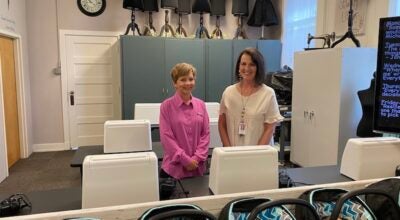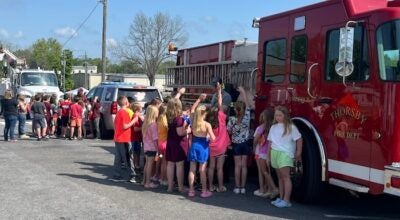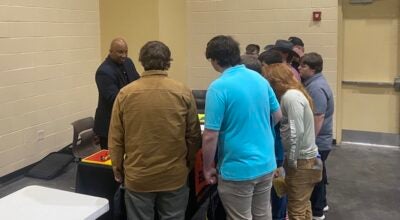Tornado warning bill reintroduced
Published 8:29 pm Thursday, January 8, 2009
National legislation would require manufactured homes to be equipped with NOAA Weather Radios, thus providing earlier tornado and severe storm warnings to people who live in mobile or modular homes.
The bill, CJ’s Home Protection Act, was reintroduced into Congress yesterday for the second consecutive session and is supported by Congressman Spencer Bachus.
The bill is named after a 2-year-old boy killed by a tornado in Indiana in 2005. His family, which lived in a manufactured home, could not hear a distant storm siren and did not have a weather radio.
“It appears that [mobile homes] are tornado magnets,” said Bill Collum, director of Chilton County Emergency Management and Homeland Security. “They’re just not as stable as a stick-built house. It’s just dangerous to be there.”
State and national statistics confirm that statement:
In the State of Alabama, from 1998-2007, 34 of the 78 tornado fatalities were people in mobile homes, according to the National Weather Service. That’s 44 percent.
Nationwide, during the same time period, 321 of the 634 tornado fatalities were mobile home residents. That rounds up to 51 percent.
Statistics like these have prompted community leaders to build more shelters in the area. Community shelters exist at Clanton City Hall, Enterprise, West Chilton and Maplesville. They are open during tornado watches and are manned during warnings, Collum said.
“All those shelters are being used. We are actively in the process of pursuing grants for additional shelters in Union Grove at the Jemison exit and at East Chilton Fire Department,” he added.
While shelters are great, weather experts recommend that every household own a NOAA Weather Radio, which are available from most electronics retailers.
“Radios are very, very important,” Collum said. “Weather warning sirens are for when you’re outside. You are not supposed to be able to hear them when you have your TV and radio on inside your house.”
Requiring manufactured homes to have the radios would increase the chances that residents would get warnings in time to find shelter during severe weather.
“With today’s technology, we have the science to predict a severe storm, sometimes as much as a half hour before it arrives,” Bachus said. “We are building more storm shelters. Now, we address the missing link for people who live in manufactured housing, making sure that people get emergency warnings in time to seek shelter from the storm.”
The legislation will be referred to the Financial Services Committee, where Bachus serves as Ranking Member.
For information on forming a severe weather plan for your household, contact the Chilton County EMA at 755-0900.






